After being assaulted annually with so many year-end accomplishment lists and subsequently getting overwhelmingly jealous of people I hadn’t even heard of until I clicked on their post, I started writing Failure Lists! Here’s last year’s.
Part of my new year resolution-making ritual is to wonder how exactly I’m going to fail at my resolutions. Because I will definitely fail! But how? That’s the interesting part. How we fail is usually so much more indicative of character and values than how we succeed, so I invite you to join me in curiosity about when and where we go astray.
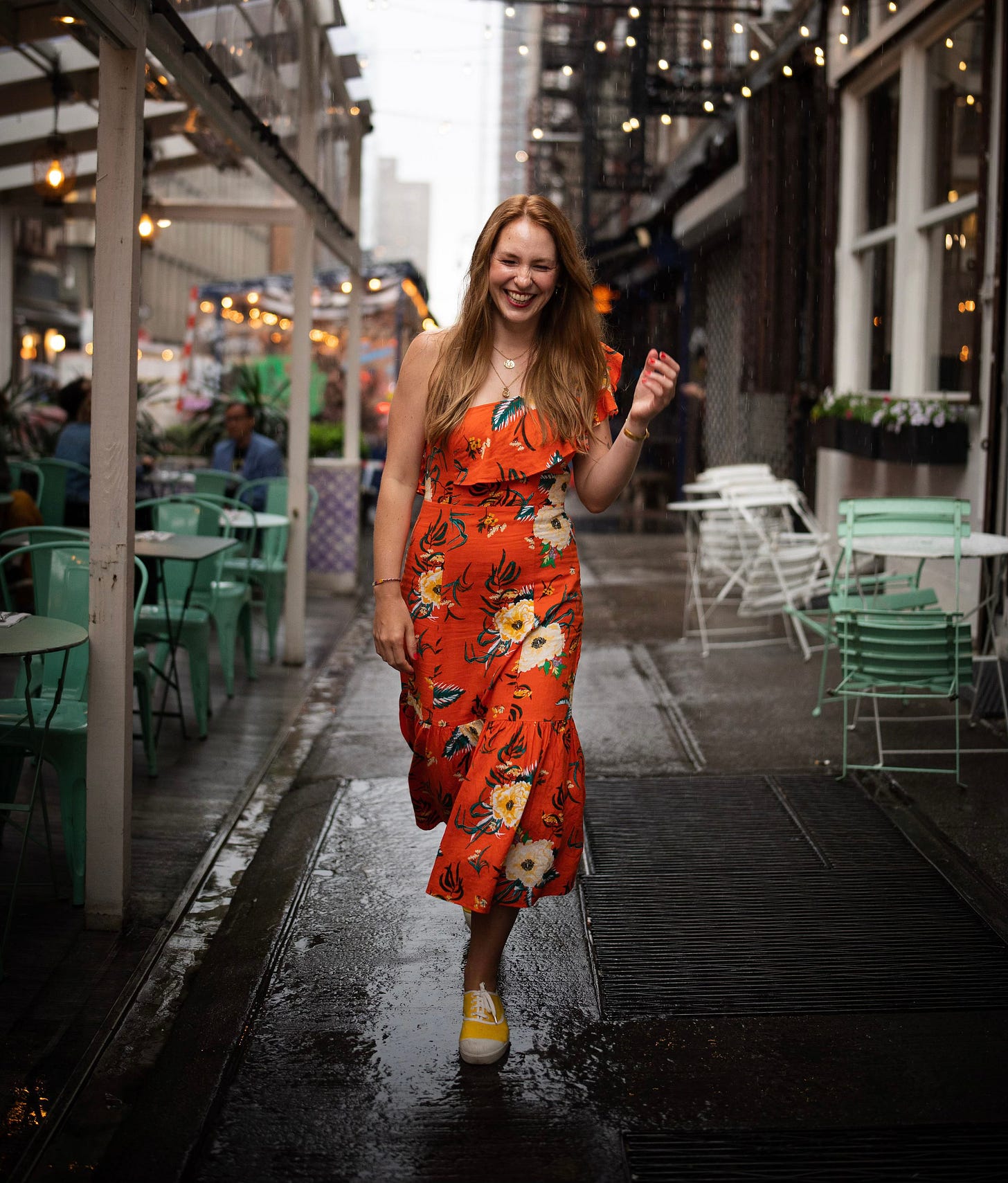
I failed at writing a book
I failed at even writing a book proposal!
I know this may sound relatively normal; almost everyone failed writing a book in 2022…I’m guessing? Unless the repairman in my bathroom right now has a novel I don't know about.
The pathetic part is that I’ve been saying “I’m writing a book” all year. All year! And yet…where is that book, you ask? Oh yeah, it’s invisible, because I didn’t actually write it!
And do I feel shame about this? Are you kidding!? I feel shame about everything! So of course that’s going to transfer right on over to the one thing I meant to get done in 2022, that I barely even started.
I did start, by the way, on a weekend in May at a retreat center with a donkey sanctuary, but I did more of this than writing:
Wouldn’t you?
But here’s where I give myself some consolation in a public forum. Writing teaches me that the big important stuff comes right on time. I don’t believe in fate or a lot of fate-adjacent concepts, but I believe in this with every procrastinating little cell of my being:
Ripe fruit falls quickly.
The bulk of the work comes in the rooting, the growing, the ripening, the waiting. The actual product rushes out when it’s ready (think: Christmas decorations taking over the shelves at your local drugstore the day after Halloween).
I wrote my last book in five days, but I lived the book over a decade. It had fully formed before I even wrote it; it was alive on my skin and in my belly. All I had to do was breathe through the labor pains and let it live outside of me.
Once it had fully cooked in my mind, it was ready to go. (I realize I’m mixing a lot of metaphors here; this is why my book will have an editor.)
This brings me to something I’ve been meaning to tell you for a while:
I don’t write every day. Not even CLOSE! A lot of people have asked me what my writing process is, how often I write every day, do I give myself a certain amount of words to put on paper each week…
I don’t do any of this. I don’t have a process. I don’t do morning pages, I don’t sit down every afternoon in front of my parchment and quill and feverishly scribble until my hourglass drops its final grain of sand.
The majority of my writing process, if you can even call it such a thing, is to take walks, look at things, talk to people, and take note of which memories stick over time.
If you see me at my laptop tip-typing away, I’m rarely working; I’m usually searching for emotional YouTube videos about interspecies friendships, or writing emails.
If you see me walking aimlessly through Brooklyn Bridge Park, burying my feet in the gravel every few steps because I crave the sound, I’m busy at work.
I failed at accepting the answer
There’s a Nigella Lawson interview I think about all the time, especially when I find myself in Q&A situations where it quickly becomes obvious that the interviewer doesn’t want you to step outside their own story:
I’ve found myself in Nigella’s place, and the same hilarity ensues. For example:
Audience question (male): Many of my female students struggle with their writing or hold themselves back because of imposter syndrome. How do you deal with imposter syndrome?
Me: I’m not a good person to answer that, because I actually don’t struggle with imposter syndrome.
Him: ???????
Me: ………..
Him: ??????
Me: It’s just that….I don't know who I’d be an imposter OF, because I’ve always just done my own thing….
Him: !!!!!!!!???????
Me: But I would say, just remember you belong there as much as everyone else!
Him: (AUDIBLE SIGH OF RELEIF)
It’s easy to critique others for doing this, as I just did. But it’s much harder to accept that we ourselves often ask a question not because we’re actually curious, but because we are looking to be given a certain answer.
The most significant growth points of the past year were moments when I asked a question of my life, only to be given an answer I didn’t accept because it didn’t fit into the mythology I’d been developing for myself. In order to answer, I’d have to color outside the lines, to completely shift the narrative.
When I failed at staying curious (a synonym of present), I forced the details of my life into my narrative rather than letting the details drive the story.
In doing so, I only set myself up for disappointment. And worse, I cast the people in my life in roles they never auditioned for, then got upset when they didn’t follow the script.
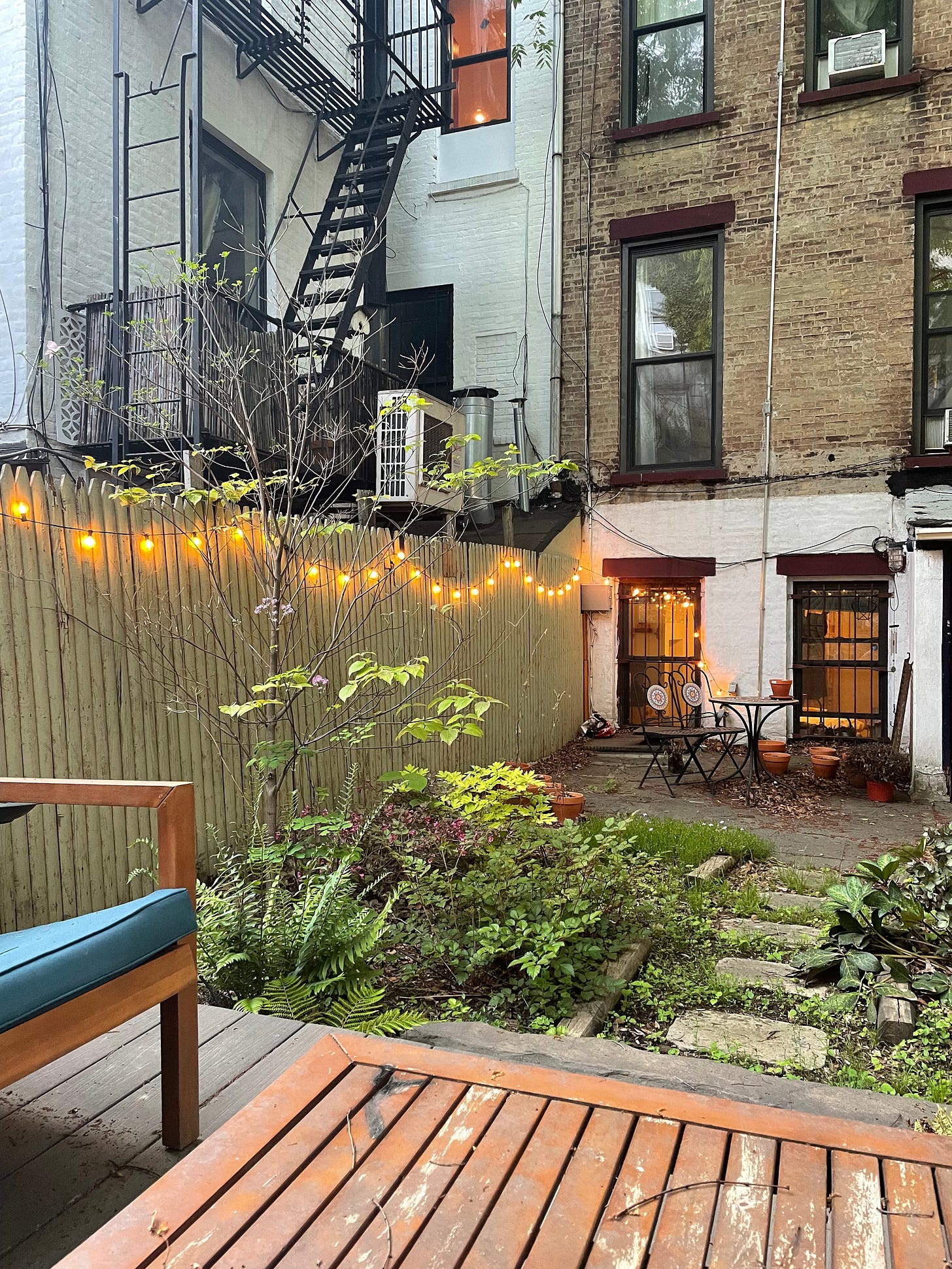
I failed at validating my own feelings
Likewise, I often looked around for external validation of my own experience, rather than simply living into it.
For example, for all of 2022 I’ve been keeping two candles lit in my heart: one for my dear friend in recovery from a stroke, and one for my sweet stepdad who is sick. At some point last month, I must have knocked my heart around too hard and the candles fell and lit the whole thing aflame. The walls, floor, ceiling of my heart-home were on fire and meanwhile I’m just walking around town in my leopard coat like everything’s fine.
I was suffering and wanted support, but the two situations were ambiguous in their own ways and our grief-shy society doesn’t have enough vocabulary for ambiguous loss. It wasn’t a lack of support from others, but a lack of available words.
My friend Madeleine, an otherworldly oracle of wisdom, told me, “You know who would have the right words to say right now? You. Mari. You are so good at understanding complicated grief; not everyone is going to be able to do that for you. So maybe this is a situation where you need to…be your own Mari.”
BE MY OWN MARI! The thought made me laugh, but I started doing it from then on, giving my own self the words I’d want from anyone else:
It makes sense you feel this way.
You don’t have to explain how you feel.
You’re going through a lot right now.
Sure, yeah, eat that second cupcake.
I failed at asking the right questions
“Are they addictive?” “What if I forget one?” “Isn’t this a really big commitment?” “Can I do it without medication?” “Has anyone done that before?” “What happens if I stop?” “What happens if the pharmacy runs out?”
I like to think I’m good at asking questions, but I was asking the wrong questions when it came to making the decision to go on medication for OCD.
My psychiatrist, a warm and gentle breeze of a woman with a sweet-as-guava-candy Colombian accent, took me through the side effects, risks, and plan for increasing the dosage over time.
And yet, I was stuck on the commitment piece: Isn’t it a LOT to take a pill EVERY DAY?
She reminded me that there are a few things I manage to do every day: brush teeth, put on shoes, and so far I haven’t had a breakdown over it.
I took months to decide, going back and forth and returning to the “What happens if I stop?” reading every single anecdote on every Internet forum where everyone shares their worst nightmare stories on a grey webpage that appears to have been designed in 1983.
I could have been asking other questions, like:
“If I’m not constantly ruminating over my anxieties, what wonders will have space to enter in my brain?”
“If I’m not always searching for signs of abandonment, what will I learn about trust?”
“If I’m not obsessing over the same old question, what other mysteries will I be able to explore?”
And, after finally approaching the max dose (actually above the max, but don’t tell the FDA) of a miraculous SNRI, my mind is much less like The Chokey and much more like an English garden.
I can think of more possibilities, I can relax in the unknown, and I can ask better questions. Which is probably good for book-writing.
I failed at dazzling the room with my flawless Spanish
A year and a half ago, I decided that I had probably learned all the Spanish I could squish inside my brains, and the priority going forward would be to continually practice so I can feel more confident speaking.
I have a rare, yet-to-be-named disease where I completely freeze up while speaking another language, as though one small error will send me to walk the plank.
Even though I came to Spanish as an adult, it’s the language that’s slipped most easily into my larynx. Maybe because I was obsessed with Almodóvar movies as a kid (which explains a lot to my therapist), I don’t know.
So I’ve been chatting with Andrea for a couple hours a week, my instruction to her being: Please correct me, but I don’t want to learn any grammar. I just want to flap my gums and know that I can thaw myself when I freeze and even manage to teach a quick lesson on the dissolution of the USSR, which I did the other day when I was trying to defend my love for Eurovision.
And yet!!!! Recently, I found myself at a party (imagine!) and there was a stunning Argentinian (this is a redundant phrase) woman present, who invited me to speak Spanish with her. This is the accent I’m most familiar with, and I thought surely it was MY TIME TO SHINE after 150 hours of talking Andrea’s ears off.
And again…I froze. I could barely remember how to say hello. It felt like my own personal Olympics moment, and I just stood there in my track suit trying to remember how to run.
Perhaps in 150 more hours, I’ll overcome this disease of profound language-shyness. For now, I’m looking forward to hearing about Andrea’s Christmas tomorrow morning.
I failed at reading the shortest book ever
I wanted to read a lot more books this year, and I did! But I began the year with a very very short book (to get a head start on my goal), and I just finished it last night.
It’s called Heating and Cooling, and it’s a gorgeous little book of mini-memoirs which range from a couple sentences to a page or two. You can easily finish it on a lazy morning in bed. But somehow I kept putting it down and picking up others, so I finished it in one full year.
It’s the type of book I love: dark, honest, and playful. So you’d think I’d gulp it down, though I’m glad I didn’t. I’m glad I took sips here and there.
One of my favorite things about this book is that I don't relate much to it. Despite a bunch of shared demographics and life experiences, the author and I see the world differently. Is it a sign of maturity or maybe just zeitgeist-fatigue where I’m starting to really appreciate books I don’t relate to?
A book is a welcome mat from a stranger outside the door of their own world, and what a good opportunity to mind-travel and be the guest of an enthusiastic host. Culture shock softens into new ways of thinking.
I failed at being a superhuman
I thought I’d never get covid. Welp…
What was your own favorite failure of 2022? Any predictions about your downfalls of 2023?


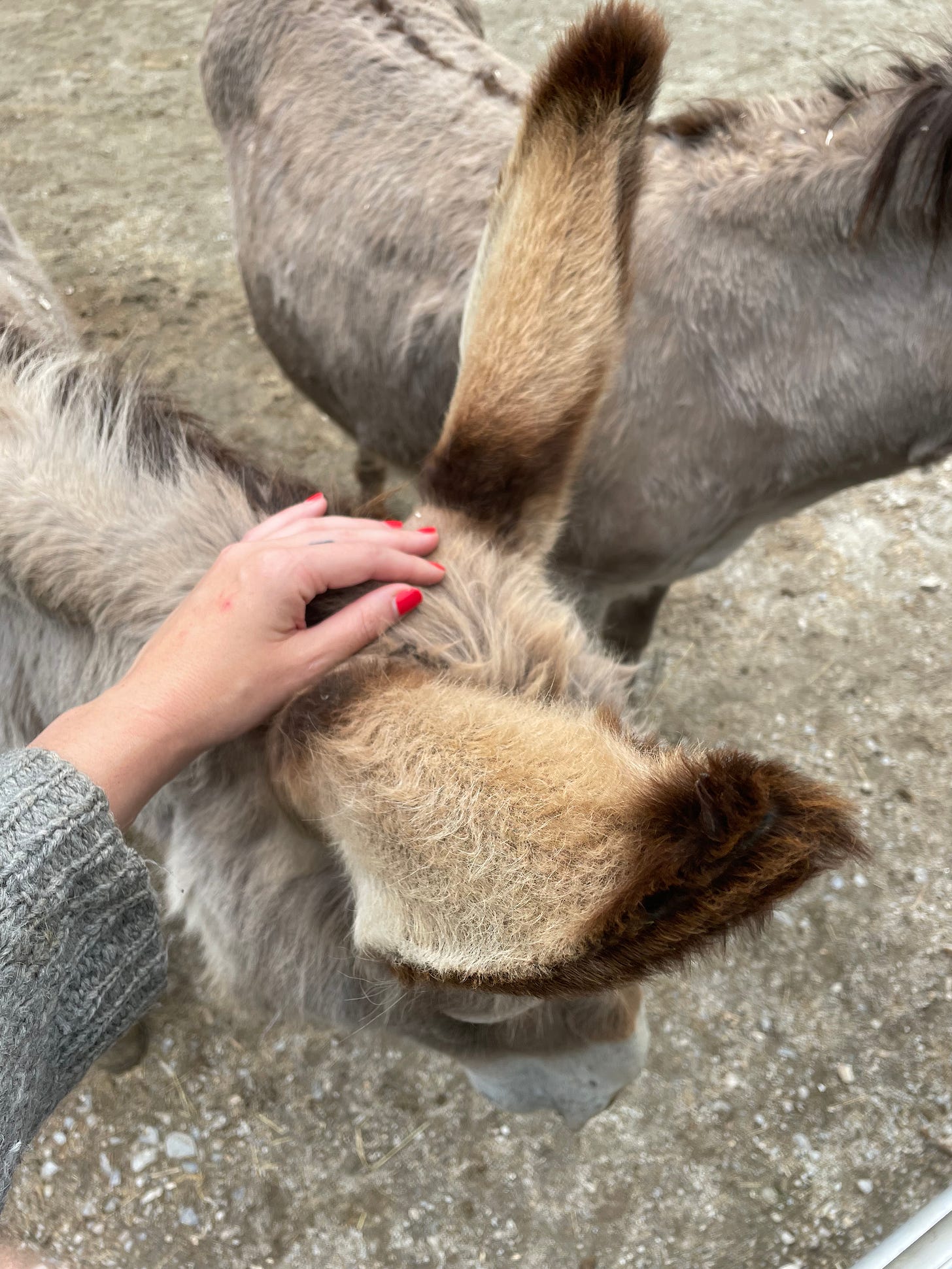
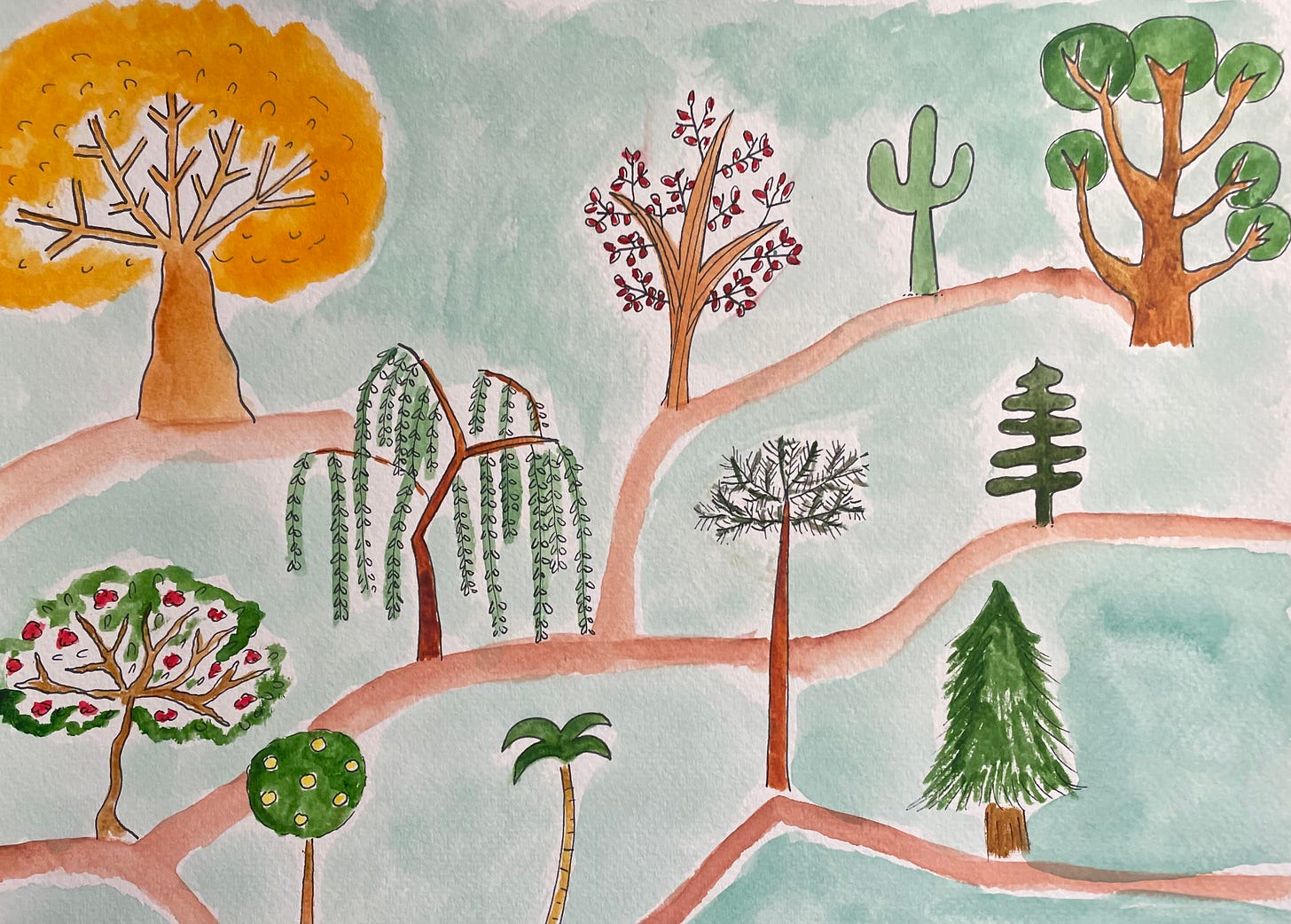
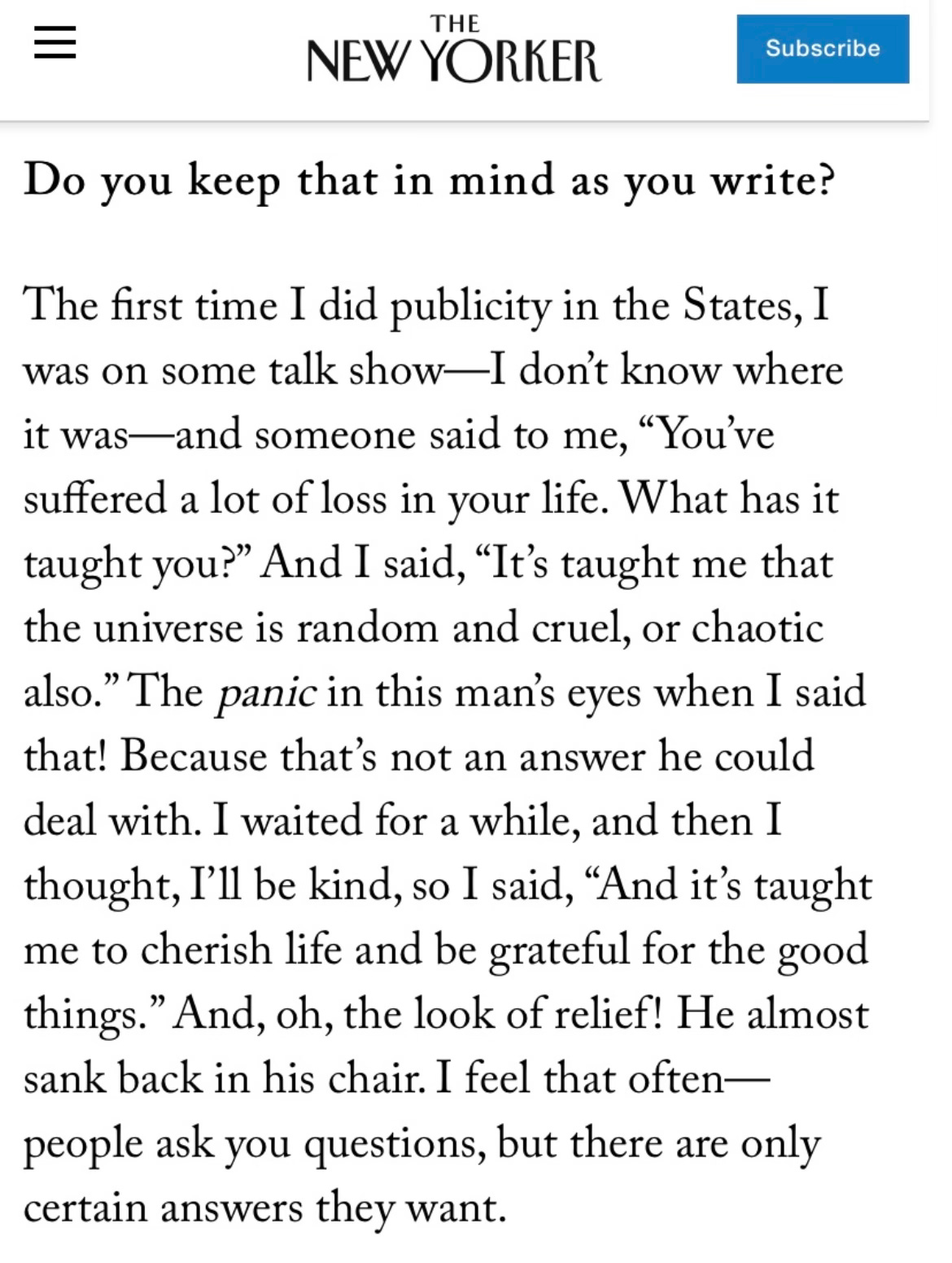
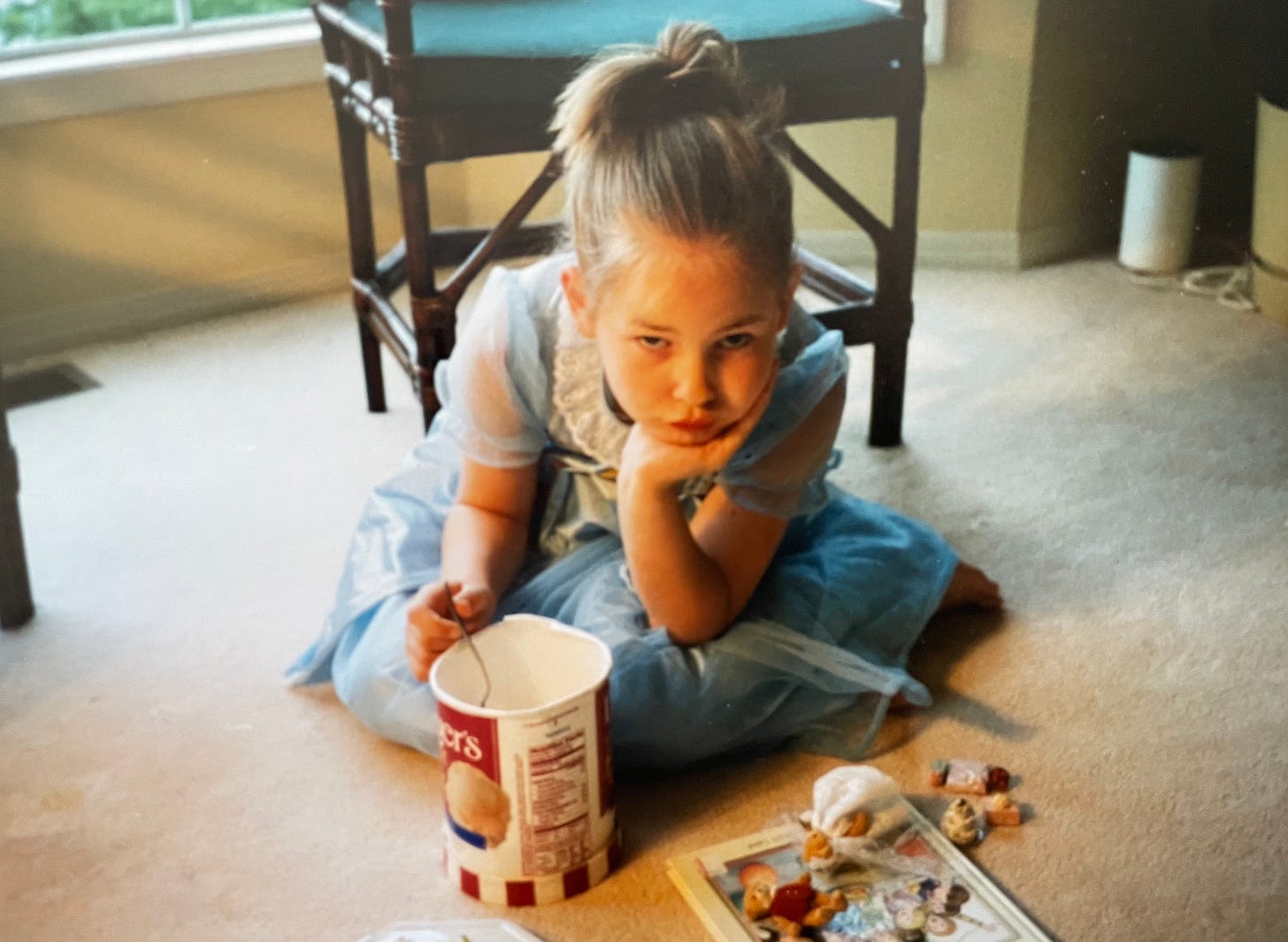
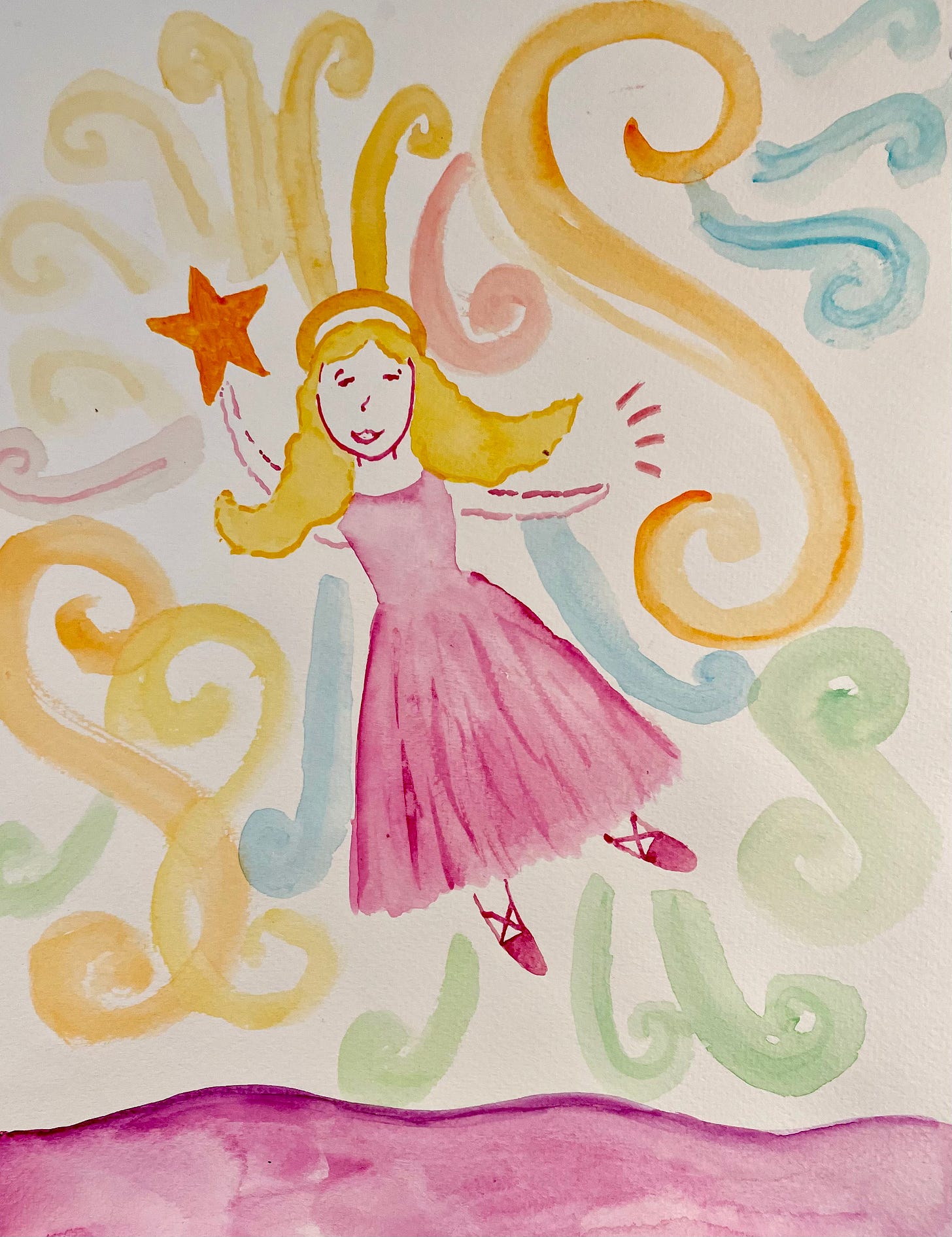
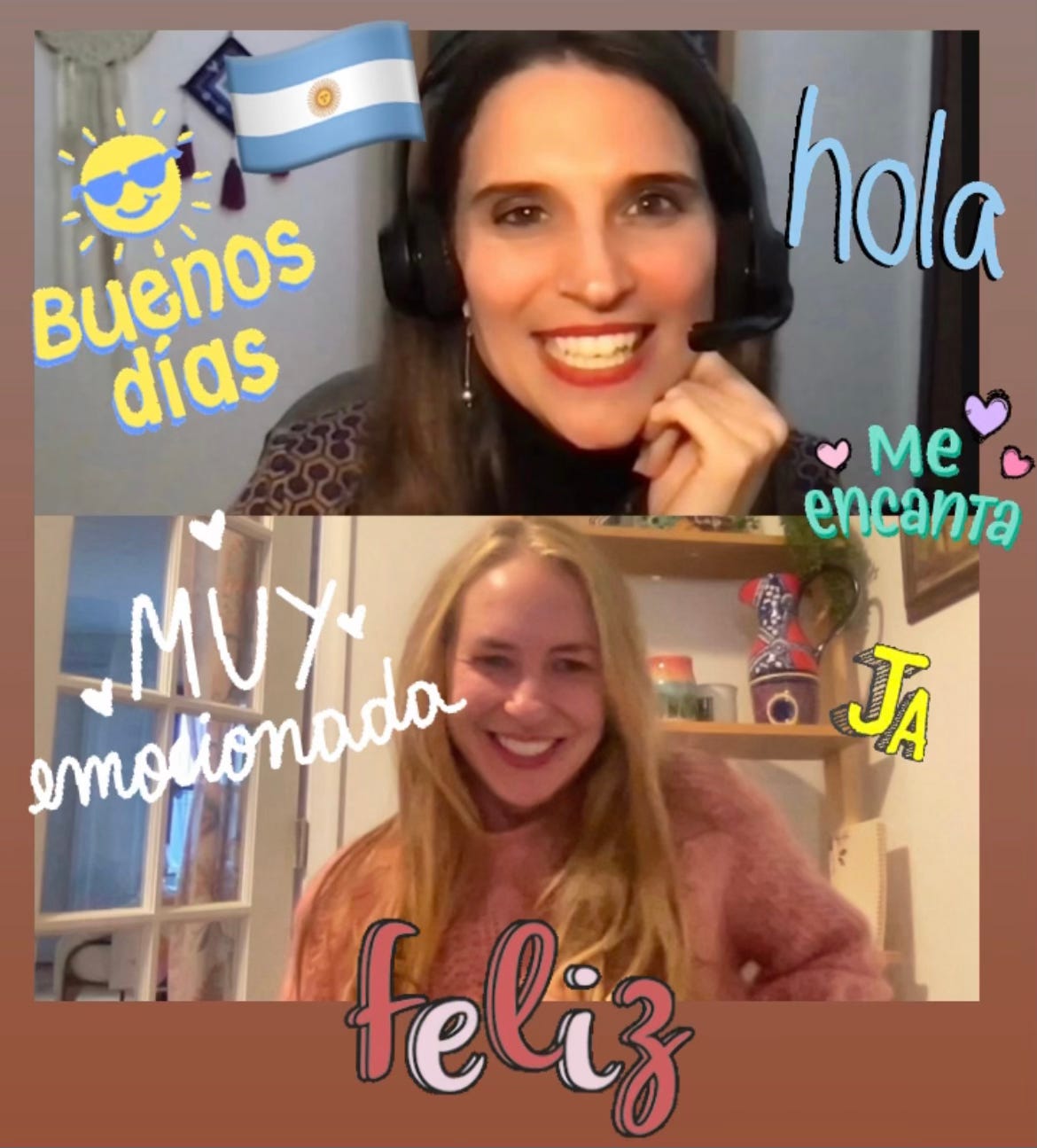

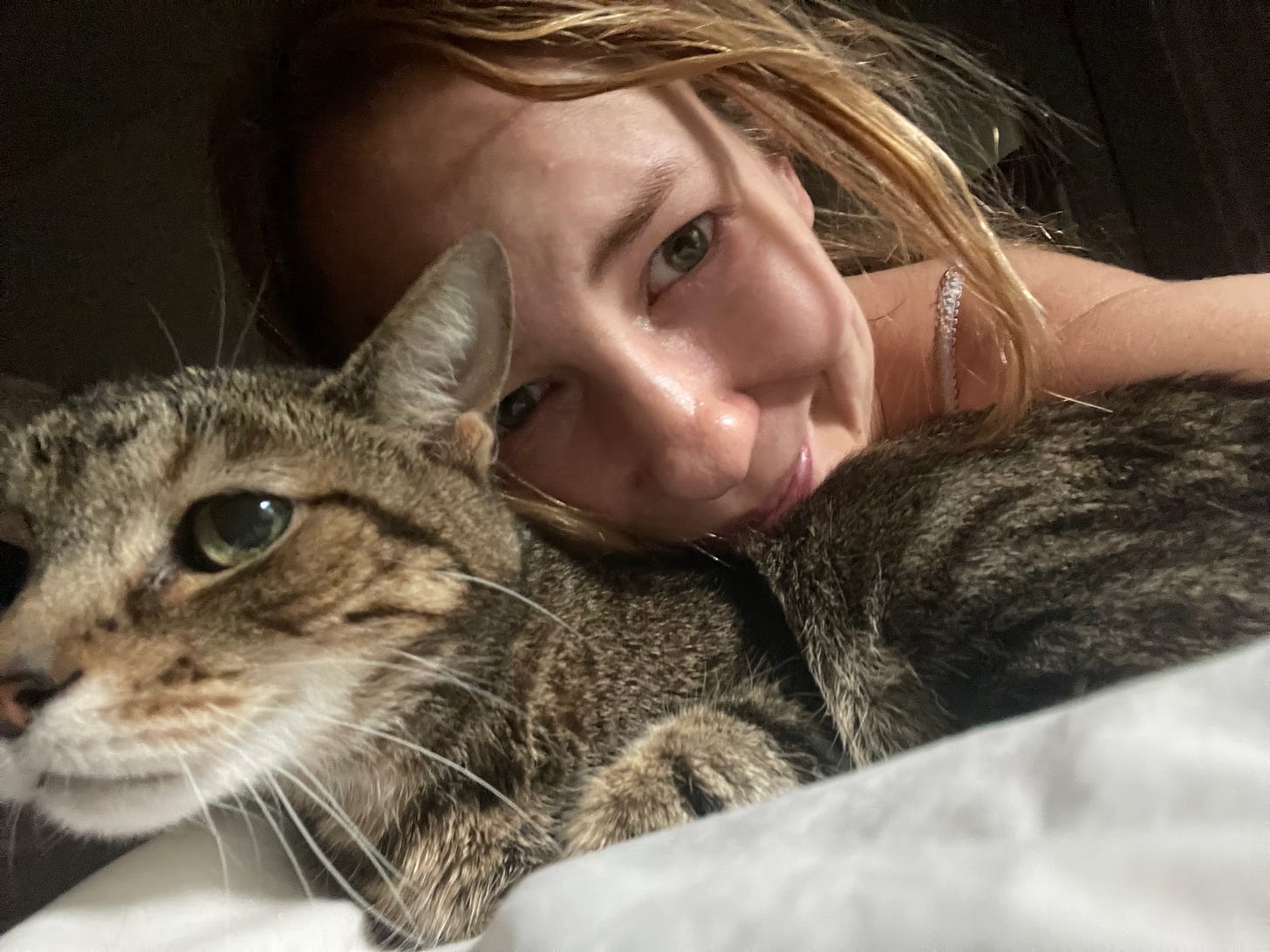
I failed at letting things go. (Is it possible we have to let certain things go hundreds of times?)
"I cast the people of my life in roles they never auditioned for, and got upset when they didn't follow the script." -- so beautifully put. I hate it when people do this to me, but am sure I do it to others as well. I remember reading that one "level of health" in the enneagram involved an "an over-identification with roles" and I think about all the time.
Speaking of phrases I'm sure I'll think of all the time, I now have a new one: "zeitgeist-fatigue." Indeed.
Thanks for writing this lovely letter, and happy new year! <3
I failed at being a mom that can do everything, I failed at accepting certain peoples annoying characteristics and always bring irritated by them on repeat. I have failed at doing the things I want.
I do like your list.
Habla espanol - no te preocupes de los errores!